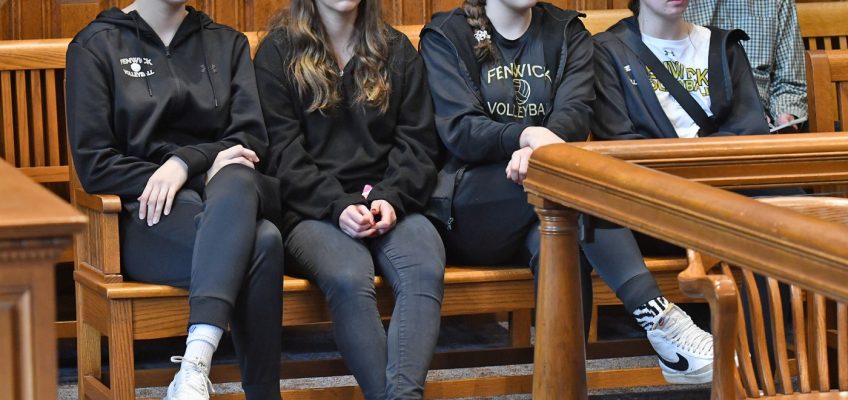The postseason fate of Bishop Fenwick’s student athletes is now up to Essex Superior Court Judge Janice Howe.
On Monday, Howe presided over an emergency hearing as Bishop Fenwick pursues an injunction against the Massachusetts Interscholastic Athletic Association’s ruling that the school is barred from participating in any postseason activities for the 2023-24 academic year. The MIAA enforced the punishment due to what it deemed Bishop Fenwick’s negligence in allowing ineligible student-athletes to participate and ensuing lack of accountability.
Bishop Fenwick allegedly used varsity baseball players whose fifth-year waiver applications contained misinformation and also used St. Mary’s middle school as a feeder system for its varsity teams.
While as of Monday evening Howe was yet to pass judgment, one is expected in short order. The timing is crucial as the MIAA fall state tournament will be underway across all sports within two weeks. Until this time the MIAA has handled Bishop Fenwick like an out-of-state team as it pertains to the power rankings. They do not appear in any updated standings but count towards an opponent’s team’s rankings. If the court were to rule in Bishop Fenwick’s favor, this would change, potentially altering the postseason fortunes for numerous teams.
Bishop Fenwick’s legal counsel took aim at its lack of participation with the inclusion of four girls volleyball players at Monday’s hearing.
Bishop Fenwick has made the case both in the lead-up to the hearings and Monday that the MIAA’s judgment is, “void for lack of due process.” The school has argued that the association’s ruling is inconsistent and arbitrary with regards to its past handling of similar situations. Its lawyer, Leo Fama, pointed to a 2012 situation with the Gardner swim team in which the MIAA originally prevented the school from participating in winter state tournaments for using ineligible players before ultimately changing its mind.
In the fall of 2021, Sutton’s girls soccer team was deemed to have used ineligible student-athletes midway through the state tournament but was allowed to keep playing as long as those student-athletes no longer took the field.
The MIAA, however, has stated on numerous occasions, including in affidavits submitted prior to Monday’s hearing, that Bishop Fenwick continues to lack accountability for its actions. MIAA executive director Bob Baldwin wrote that Bishop Fenwick attempted to distance itself from the varsity baseball player’s waiver process, “placing the blame solely on (the student-athlete) and his family and the-then athletic director.”


Leave a Reply